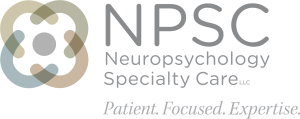
Brain Food Friday 3.26.21
At NPSC we know that one of the best ways to keep your brain healthy is to learn new things. Unfortunately, with all of the information available to us, it can feel almost impossible to find the time to sift through the web to find the gems.
So, we’ve decided to do it for you! Every Friday, you can find five new articles or videos from the week that will stretch your mind, fuel your spirit, and feed your brain.
“50 REASONS TO LOVE THE WORLD- 2021” by BBC Travel Editors, bbc.com
“It goes without saying that the world was turned upside down last year as we faced a global pandemic, racial reckoning and the continued effects of climate change. However, we at BBC Travel believe the dawn of 2021 brings with it a new sense of hope and possibility- as well as a heightened sense of connection to each other and the world around us.”
“A 300-YEAR-OLD TALE OF ONE WOMAN’S QUEST TO STOP A DEADLY VIRUS” by Geoff Brumfiel, npr.org
In 1791 a smallpox epidemic swept through England. One woman—Lady Mary Wortley Montagu— knew how to end the outbreak. She “had learned a technique from women in the distant Ottoman Empire that could stop the pox in its tracks.”
“WHEN LIFE GAVE PENNSYLVANIA SPOTTED LANTERNFLIES, ITS BEES MADE SPOTTED LANTERNFLY HONEY” by Alexandra Jones, atlasobscura.com
They created “a smoky-sweet flavor, courtesy of an invasive species.”
“SHE KEPT A LIBRARY BOOK FOR 63 YEARS. IT WAS TIME TO RETURN IT.” by Sasha von Oldershausen, nytimes.com
“‘I think that says a great deal about how much we as a society value the written word,’ a shocked librarian said.”
“A BRIEF HISTORY OF THE HARMONICA” by Steve Knopper, smithsonianmag.com
“How the world’s handiest instrument took over American music.”

Brain Food Friday 3.19.21
At NPSC we know that one of the best ways to keep your brain healthy is to learn new things. Unfortunately, with all of the information available to us, it can feel almost impossible to find the time to sift through the web to find the gems.
So, we’ve decided to do it for you! Every Friday, you can find five new articles or videos from the week that will stretch your mind, fuel your spirit, and feed your brain.
“DEAD SEA SCROLLS DISCOVERIES ARE FIRST ANCIENT BIBLE TEXTS TO BE FOUND IN 60 YEARS” by Patrick Smith, nbcnews.com
“A 6,000-year-old skeleton of a partially mummified child and a 10,500-year-old basket were also discovered.”
“BURNOUT ISN’T JUST EXHAUSTION. HERE’S HOW TO DEAL WITH IT” by Rhitu Chatterjee, npr.org
“Whether working from home or not, many people are feeling burned out during the coronavirus pandemic.”
“HOW IDA HOLGREVE’S STITCHES HELPED THE WRIGHT BROTHERS GET OFF THE GROUND” by Leo DeLuca, smithsonianmag.com
“In 1910, Orville and Wilbur Wright hired an Ohio seamstress, who is only now being recognized as the first female worker in the American aviation industry.”
“HOW MANY 13 SEEDS HAVE WON IN MARCH MADNESS? HISTORY OF 13 VS. 4 UPSETS, STATISTICS FOR NCAA TOURNAMENT” by Ryan Fagan, sportingnews.com
“It’s difficult to fill out an NCAA Tournament bracket without picking at least one 13-over-4 upset, isn’t it?”
“A PIONEER OF DIGITAL DESIGN LOOKS BACK ON A DEFINING ERA” by Nika Simovich Fisher, nytimes.com
“Loretta Staples, a U.I. designer in the 1980s and ’90s, had a front-row seat to the rise of personal computing.”

Brain Food Friday 3.12.21
At NPSC we know that one of the best ways to keep your brain healthy is to learn new things. Unfortunately, with all of the information available to us, it can feel almost impossible to find the time to sift through the web to find the gems.
So, we’ve decided to do it for you! Every Friday, you can find five new articles or videos from the week that will stretch your mind, fuel your spirit, and feed your brain.
“THE 11 GREATEST MARCH MADNESS CINDERELLA STORIES” by Joe Boozell, ncaa.com
“A March Madness Cinderella is a team that greatly exceeds its NCAA tournament expectations. They are generally afterthoughts on the Selection Sunday bracket, but wind up becoming one of the biggest stories of the tournament.”
“THE HIDDEN HISTORY FOUND IN YOUR TEETH” by Carolyn Freiwald, ted.com
“Your teeth carry secrets: centuries of history about your ancestors, from where they lived to what they ate and where they traveled. “
“TRIANGULATING MATH, MOZART AND ‘MOBY DICK'” by Siobhan Roberts, nytimes.com
“Sarah Hart, the first woman to hold England’s distinguished Gresham professorship of geometry, explores the intersections of music, literature and mathematics.”
“EIGHT OF LITERATURE’S MOST POWERFUL INVENTIONS—AND THE NEUROSCIENCE BEHIND HOW THEY WORK” by Angus Fletcher, smithsonianmag.com
“These reoccurring story elements have proven effects on our imagination, our emotions and other parts of our psyche.”
“YOUR GENETICS INFLUENCE HOW RESILIENT YOU ARE TO COLD TEMPERATURES: NEW RESEARCH” by Victoria Wyckelsma and Peter John Howeling, salon.com
“People with this gene variant shivered less and had a higher core body temperature when exposed to cold water.”

Recent Comments